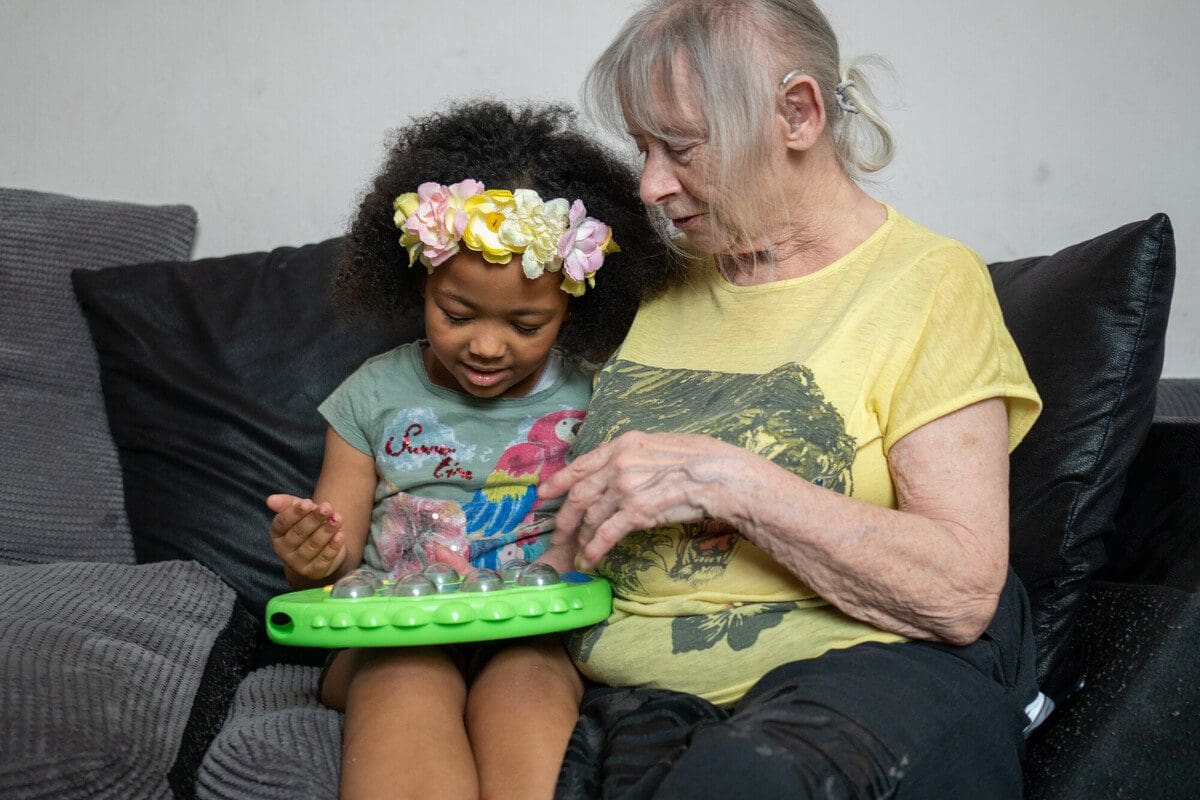Sundowning
Sundowning is a term used for the changes in behaviour that occur in the evening, around dusk, and experience agitation or anxiety.
Helen Green from the Dementia Helpline talks through how she united one family troubled by sundowning.

Sundowning is a common issue for many people with dementia. It can result in increased anxiety, agitation or a sense of being in the wrong place during the evening. This can be because the day is drawing to a close and a person with dementia might be tired, and may experience heightened feelings of confusion or even pain.
A woman contacted the Helpline for advice about her mother’s behaviour in the evening and symptoms of sundowning. She said she and her sisters were caring for their mother at home and were finding the evenings very difficult. Since the death of her father, her mother had become increasingly agitated and verbally hostile and she would frequently become anxious that he was not home yet.
I was able to advise the daughter on some of the reasons behind the changes in her mother’s behaviour during the early evening, such as increased fatigue and confusion. I discussed with her suggestions on how to lessen her mother’s feelings of anxiety, by drawing the curtains and turning lights on before dusk, reducing her caffeine intake, and encouraging her mum not to nap during the day, so that she was naturally more tired in the evening.
I encouraged the daughter to reflect on her mother’s past routine in the evening and how this may have been different from now. The daughter could identify that when she and her sisters were younger, her mother would have been very busy preparing the evening meal, caring for them all and doing household chores. Now that the evenings were more relaxed, it was more than likely that this may not have felt ‘normal’ to her.
With this in mind, I spoke to the daughter about how she could involve their mother more in their current routine, such as helping prepare the evening meal, completing simple household chores such as folding laundry, or telling a bed time story to the grandchildren to help her recognise the day was coming to an end.
We talked about ways the family could hold on to their father’s memory and how this could be a source of comfort for the mother during the evening. Their father would often play a big role at meal times and would be responsible for seating arrangements and serving food. I suggested they could reminisce about this as part of their evening routine.
The daughter also said that once their father was home, the front door would be firmly bolted shut as this was his way of indicating everybody was home for the evening. He would also leave his work shoes in the hall. I talked her through how they could make this part of their evening routine to reassure her mother as well.
When supporting someone with dementia, it’s important to bear in mind that it is often the underlying emotion driving the thoughts, beliefs and actions of a person with dementia. Therefore encouraging conversation about happy times can produce positive emotions that may reduce feelings of anxiety. I gave the daughter the support and comfort to open up about past positive experiences and how she could use those experiences to calm her mother. Finally, the daughter started to think about song lyrics her mother had sung to her and how these same songs could be used to reassure her.
Sundowning is a term used for the changes in behaviour that occur in the evening, around dusk, and experience agitation or anxiety.

Help us raise vital funds, improve care and support for families facing dementia and spread the word about our specialist dementia nurses.

Sharing your story with Dementia UK can help to inspire and reassure others who may be going through similar things.